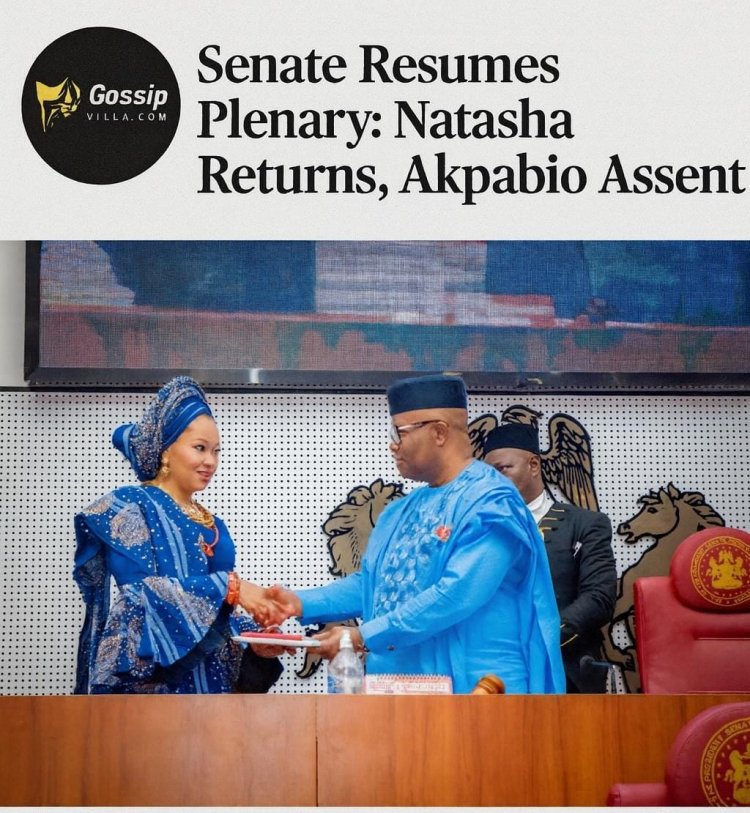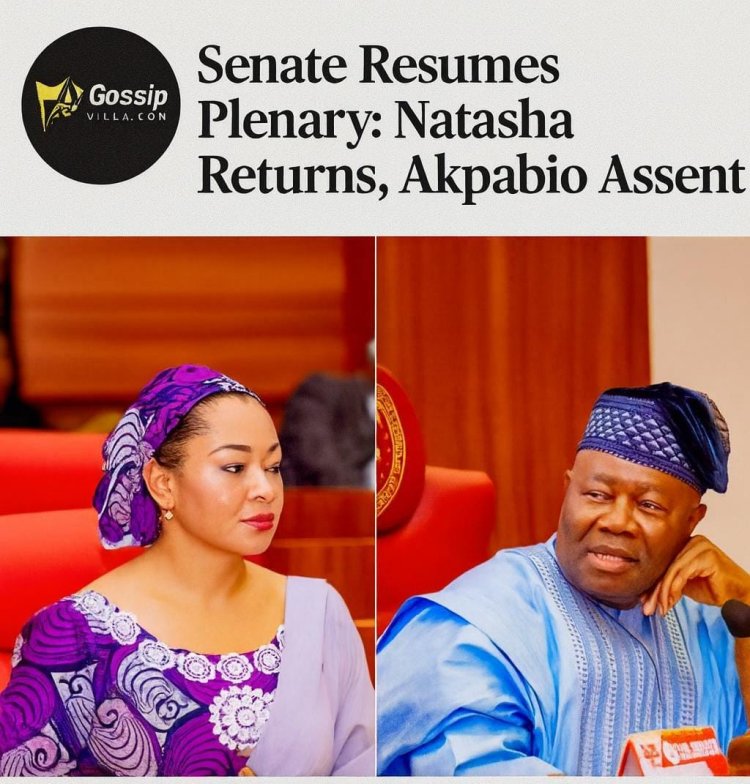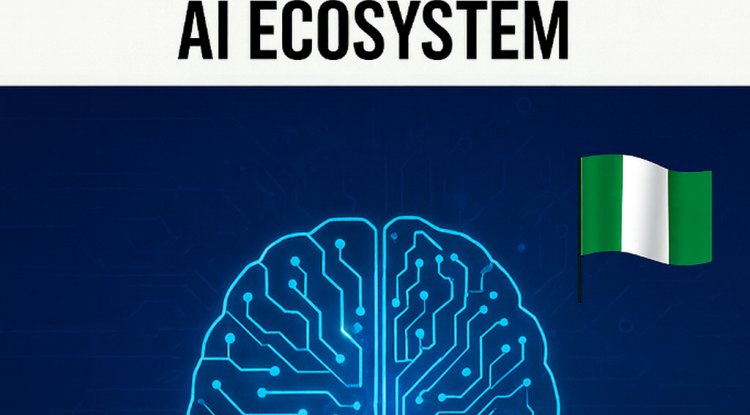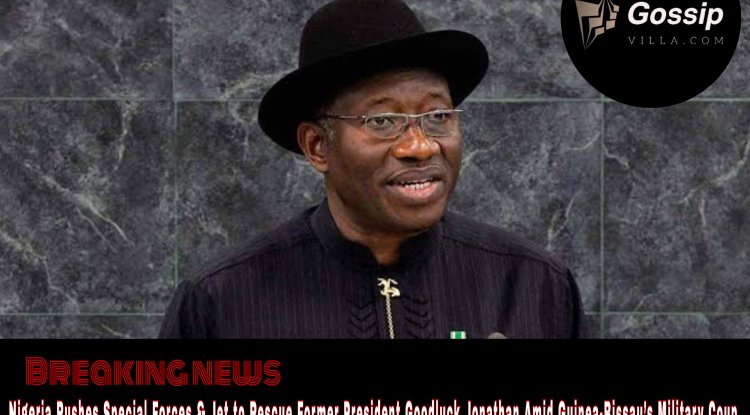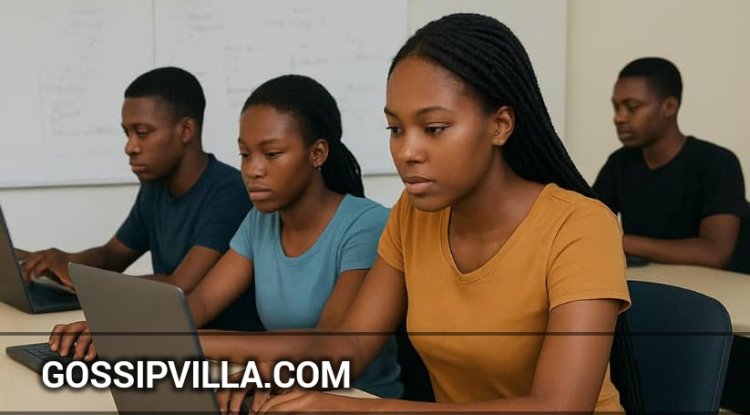Senate Resumes Plenary: Natasha Akpoti-Uduaghan Returns in Triumph as Akpabio’s Absence Sparks Speculation
Senate Resumes Plenary: Natasha Akpoti-Uduaghan Returns in Triumph as Akpabio’s Absence Sparks Speculation
Senate Resumes Plenary: Natasha Returns, Akpabio Absent
The Nigerian Senate reconvened on October 7, 2025, after a ten-week recess, ushering in the final quarter of the legislative year with a blend of anticipation and notable absences. The session, reported by Politics Nigeria, marked the return of Senator Natasha Akpoti-Uduaghan, whose reinstatement after a six-month suspension drew significant attention. Representing Kogi Central, Akpoti-Uduaghan’s comeback was a moment of triumph, while Senate President Godswill Akpabio’s absence, with Deputy Senate President Barau Jibrin presiding, sparked curiosity among observers. As the Senate gears up for a packed agenda—including the 2026 budget, constitutional amendments, and security reforms—this session sets the stage for critical deliberations in Nigeria’s evolving political landscape. This article explores Akpoti-Uduaghan’s return, Akpabio’s absence, the Senate’s legislative priorities, and the broader implications for governance in Nigeria.
Natasha Akpoti-Uduaghan’s Triumphant Return
Senator Natasha Akpoti-Uduaghan’s return to the Senate was a focal point of the October 7 plenary, marking the end of her six-month suspension stemming from a heated exchange with colleagues earlier in 2025. Representing Kogi Central Senatorial District, the Peoples Democratic Party (PDP) lawmaker was greeted with warm applause from peers and supporters, signaling a reconciliatory tone within the chamber. Dressed in striking purple traditional attire, Akpoti-Uduaghan delivered a brief address reaffirming her dedication to her constituents, emphasizing transparency, justice, and inclusive representation.Her suspension, reportedly linked to a dispute over procedural conduct, had sparked debates on X, with users like @NaijaVoice23 praising her resilience and others, such as @KogiPatriot, lauding her advocacy for
Kogi’s economic development.
Akpoti-Uduaghan’s legal background and prior role as a governorship candidate in 2019 have positioned her as a vocal advocate for women’s rights and infrastructure, notably pushing for the Ajaokuta Steel Company’s revival. Her return strengthens the PDP’s voice in the Senate, particularly as opposition dynamics shift ahead of 2027, and signals her intent to influence key legislative battles.
Akpabio’s Absence Raises Eyebrows
The absence of Senate President Godswill Akpabio during the resumption added an unexpected twist to the session. Deputy Senate President Barau Jibrin, a seasoned lawmaker from Kano, presided over proceedings with composure, ensuring a smooth start to the plenary. No official reason was provided for Akpabio’s absence, but sources cited by Politics Nigeria suggest he was engaged in official commitments outside Abuja, possibly tied to international parliamentary engagements or regional consultations following Nigeria’s 65th Independence Day celebrations.Akpabio’s absence, though not unprecedented, fueled speculation on X, with posts like @SenateWatchNG questioning whether it reflects internal tensions or strategic scheduling. As Senate President since 2023, Akpabio has been a polarizing figure, balancing President Bola Tinubu’s legislative agenda with opposition pressures. His leadership has overseen milestones like the Petroleum Industry Act amendments, but critics point to controversies, such as the handling of Akpoti-Uduaghan’s suspension, as flashpoints. Jibrin’s steady hand during the session mitigated disruptions, but Akpabio’s return will be closely watched as the Senate tackles high-stakes issues.
A Packed Legislative Agenda Awaits
The Senate’s resumption heralds a critical season, with a robust agenda poised to shape Nigeria’s policy landscape. Top priorities include the 2026 budget, which President Tinubu is expected to present in November, aiming to sustain the 4.23% GDP growth reported in Q2 2025. Constitutional amendments, particularly around state police and electoral reforms, are also slated for debate, reflecting public demands for improved security amid rising banditry in the North-West. Additionally, the Senate is under pressure to address economic reforms, including tax policies and infrastructure funding, following Tinubu’s ₦1.5 trillion South-East road projects announcement.
The plenary’s early discussions, as noted on X by @LegisReports, highlighted motions on flood relief for Borno and youth unemployment, signaling a focus on immediate socio-economic challenges. With Nigeria’s inflation stabilizing at 32.15% in August 2025, per the National Bureau of Statistics, senators face the task of balancing populist measures with fiscal discipline. Akpoti-Uduaghan’s return could amplify debates on gender equity and regional development, particularly for Kogi, while the Senate’s cohesion will depend on navigating partisan divides in a chamber dominated by the All Progressives Congress (APC).
Implications for Governance and Political Dynamics
The October 7 resumption underscores the Senate’s pivotal role in Nigeria’s governance as it grapples with a nation at a crossroads. Akpoti-Uduaghan’s reinstatement strengthens the opposition’s voice, potentially galvanizing PDP efforts to counter APC dominance, especially after recent defections like that of Senator Ehigie Uzamere. Her focus on transparency could push for greater accountability in budget allocations, resonating with X sentiments like @CivicNG’s call for “legislative integrity.” Meanwhile, Akpabio’s absence, though temporary, highlights the need for consistent leadership to maintain momentum on reforms.
In conclusion the Senate dives into its agenda, the interplay between returning figures like Akpoti-Uduaghan and the APC-led leadership will shape public perception. With 2027 elections looming, this session offers a platform to address Nigeria’s 40% youth unemployment and security crises, potentially restoring faith in governance. The warm reception to Akpoti-Uduaghan and Jibrin’s steady oversight signal a Senate poised for action, but its success hinges on translating plenary debates into tangible outcomes for a nation hungry for progress.
News source:punch news, channels news
What's Your Reaction?







